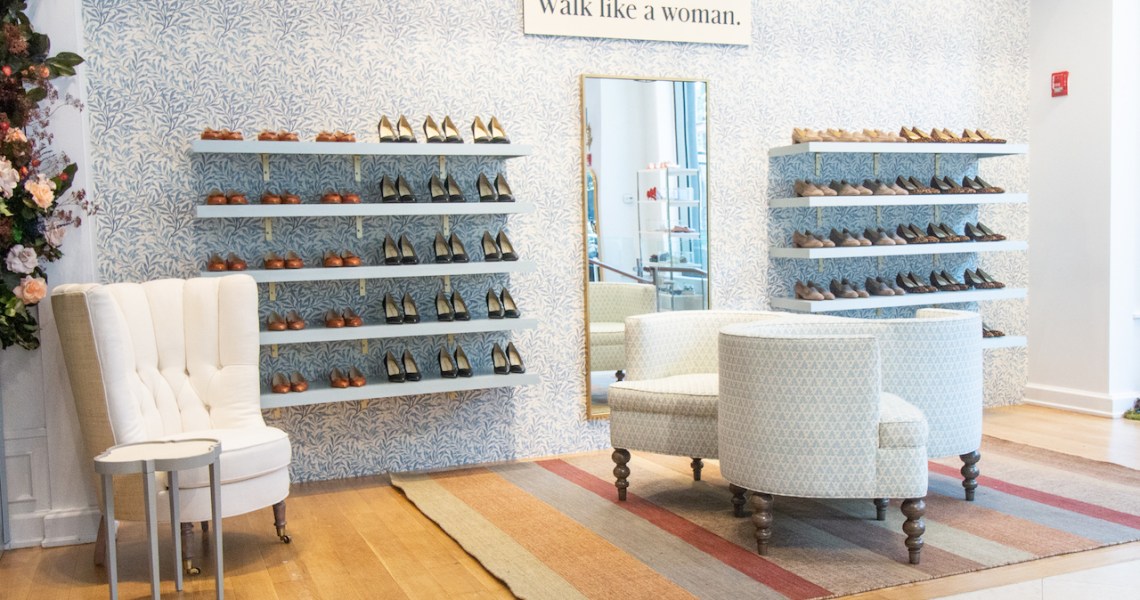While the coronavirus crisis is unprecedented in modern history, some brands have drawn on their experiences in other times of crisis, citing the immediate aftermath of 9/11 and the fallout from the 2008 financial crisis as comparable, albeit different, times of immense hardship.
For founders who launched brands in only in the last few years, this massive disruption to both life and business is not only a crisis unlike anything they’ve faced before, but it’s also their first real crisis in general. Sarah Flint, who founded her eponymous footwear brand in 2013, fits the bill.
“We’ve never faced anything like this,” said Flint. “The closest thing that compares was not a crisis, but still a massive upheaval — when we ended all our wholesale partnerships and moved completely to DTC in 2017. Now that I’m seeing a lot of brands with orders being canceled from department stores and being forced to sell direct, I feel the pain of that revenue gap. It hurts, but it taught me how to do more with less. We doubled our revenue with a third of our budget, so it did force us to innovate and get creative, which will hopefully be helpful now.”
Sarah Flint does 90% of her manufacturing in the Lombardy region of Italy, which is a double-edged sword. Italy being one of the hardest hit countries means that her manufacturing has been at a standstill for over a month now. However, the earliness with which Italy was affected meant that she had time to prepare. One of the first things she did was bring as much product from Italy to the U.S. as soon as possible by switching from shipping by boat to shipping by air (which is more expensive but faster), and having partial orders sent over rather than waiting for a full order to be completed. Luckily, U.S.-based fulfillment and deliveries have not seen delays.
By moving product to the U.S., Flint said she was able to get a majority of her spring and summer inventory safely to the U.S. before things went into lockdown, giving the brand a solid stock to sell through. Flint said her lead times are long, taking about a year or more for a new product to be developed and manufactured. This meant that the products she has now are not the most ideal to be selling during a pandemic.
“We launched a bridal shoe this month, which you can imagine was a weird and challenging decision to make,” Flint said. “But we had already planned it, designed it, had it manufactured. We had the shoes on-hand and we had to sell them. I shared a personal note with our customers [through social media and email], talking about my experience postponing my own wedding, which was supposed to happen this year, and talking about how we have to think about the future.”
Flint said she’s also been refocusing the brand’s marketing messages to be more serious and transparent about things like price and manufacturing. In her personal messages to followers and customers and on the brand’s Instagram page where they have more than 75,000 followers, Flint said she’s even begun talking openly about price, normally something she avoids, in personal correspondences with customers and in Instagram posts. The idea is to communicate with customers why the brand doesn’t do sales. (Its margins are thin and it sells almost entirely direct so there is little markup.) Instagram posts and email are the brand’s primary mediums for these efforts.
Ad position: web_incontent_pos1
Flint’s team is operating from their respective homes — in Flint’s case, her parents’ home — and communicates through reular Zoom check-ins. While helpful, Flint said the constant Zoom meetings feel like more of a mental drain than standard in-person meetings ever did.
The silver lining in all this, according to Flint, has been the response from loyal customers. Sales are down by a significant margin, though Flint declined to give specific revenue numbers, but sales haven’t completely dried up — selling best are brand’s less formal flats and sandals. The brand’s social engagement — measured by likes, comments and new follows — is up by 25%, and Flint has been doing at least six or seven calls with randomly selected customers each week to talk to ask about what they would like to see from the brand.
Throughout this whole ordeal, Flint said by far the hardest thing has been the uncertainty. She has made plans, like emphasizing more comfortable and casual styles within the next six months , based on feedback from her calls, and has focused on doing social good: She’s raised tens of thousands of dollars for hospitals in Lombardy by soliciting donations from followers on Instagram and donated 400 pairs of shoes to health-care workers. Still, there’s a constant feeling of unease, she said.Each decision made with information available today could be totally upended by new information available tomorrow.
At the current rate, Flint said that if sales stay steady and the factories open back up by June, the brand should be able to stay afloat. Flint has not had to lay off any of her 27 employees, though has moved her head of retail (who handles the brand’s numerous pop-ups since it operates no permanent stores) to the operations side of the business. But she said she feels less control over her partners in Italy.
“We’re still selling through our existing inventory, both core styles and new spring styles, and we have some summer and fall too,” Flint said. “Luckily we were able to adjust our order volume a bit and and cancel some reorders. We haven’t had any layoffs and we still have cash on hand, which is all good. But my biggest concern is for my factories and how we can keep them afloat, maybe even fronting them money for future orders.”




